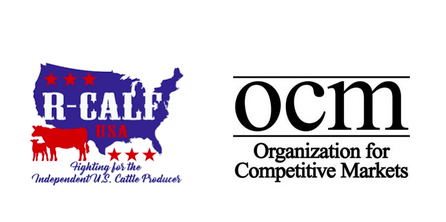R-CALF USA: Oklahoma Ranchers Vote Down the Oklahoma Cattlemen’s Associations Attempt to Increase Their Taxes

Media Contact: R-CALF USA CEO Bill Bullard
Phone: 406-252-2516; r-calfusa@r-calfusa.com www.r-calfusa.com
Angela Huffman, 614-390-7552, ahuffman@competitivemarkets.com
OKLAHOMA CITY, OK – Today Oklahoma farmers and ranchers won a great victory against the Oklahoma Cattlemen’s Association (OCA) and their corporate out of state interests. In an announcement today, the Oklahoma Department of Agriculture Food and Forestry (DAFF) announced in a vote of 2506 to 1998 the Oklahoma Beef Checkoff Referendum had been defeated.
The Organization for Competitive Markets (OCM) and R-CALF USA on behalf of their Oklahoma members had joined together to lead the opposition to the referendum calling out the OCA for attempting to double the tax paid on every head of cattle sold.
Bill Bullard, CEO for R-CALF USA stated, “We were proud to stand with our Oklahoma members to ensure justice was carried out during this election.” He concluded, “It is good to know that in America, if you stand up for what is right you can still win.”
In spite of the inherent conflict of interest, DAFF had granted the lead organization pushing for the passage of the Oklahoma Beef Checkoff increase, OCA, the exclusive right to administer the election process and vote.
Oklahoma farmer and OCM board member Paul Muegge added, “With my years of experience fighting corporate agriculture, I knew we had to stand up to OCA. They are nothing more than the modern day cattle barons trying to ride rough shod over family farmers and ranchers and using our government to do so.”
Members of R-CALF USA and OCM had filed an application with the Oklahoma Supreme Court. Based on the court’s procedural rules, the Plaintiffs will have to dismiss their case now that they have won the election.
In that the referendum failed making the issues moot, Brian Ted Jones, attorney for the plaintiffs will be dismissing the case. He stated, “Unfortunately having to dismiss the case leaves serious constitutional questions about the statute and the process left unanswered.”